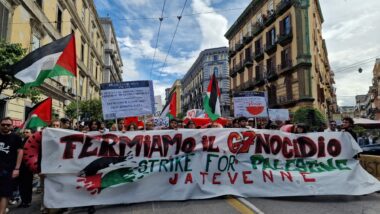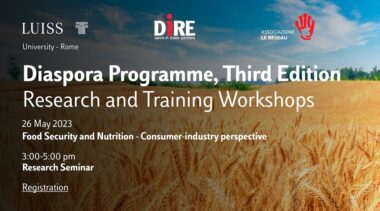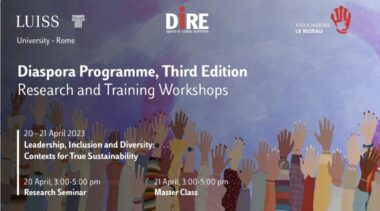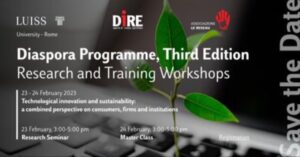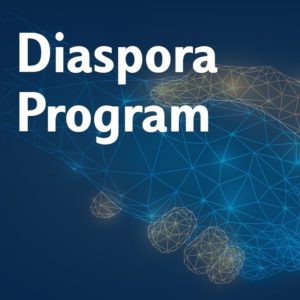Luiss University, Diaspora Program takes off: world horizons
Webinar series starts with focus on Africa and circular migration of students
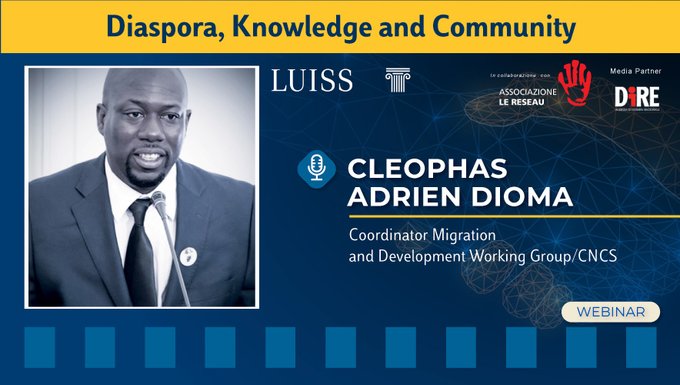
ROME – The diasporas are the missing piece in the puzzle that we have found at last. They have become the key element which we must promote in the interests of Italy and her relations with the world.
By beginning with the sharing of knowledge, universities can invest in the circular migration of talents. This is the commitment of Luiss Guido Carli University, who is hosting a series of webinar lectures which took off today.
“Diaspora, knowledge and community” is the title of this first online meeting, and it is also a reflection on the actual meaning of the words. According to Paola Severino, Vice President of Luiss University with a mandate for internationalization, ”the diasporas should not be considered only as communities that are leaving their own country but also, and above all, as “bridge builders” who are able to mix in with a wide range of cultures that provide a stimulating environment for universities”.
This point of view was put across during the webinar by the Deputy Minister for Foreign Affairs and International Cooperation, Emanuela Claudia Del Re. According to her, there can be a positive fallout with “brain circulation”, that is the mobility of both students, experts and professionals. “The diasporas contribute towards the development of their countries of origin with remittances, by creating nominal capital and sharing their knowledge which they have acquired”, the Deputy Minister pointed out. “They can promote investment on an international level and also bring about a ‘weltanschauung’, a world view, that crosses borders”. The Luiss series of lectures will focus on complex and crucial topics on a monthly basis. These include ‘Innovation, Digitalization and Sustainability as a Way to Social and Ecological Transition’, ‘Italian and African Geopolitical Perspectives’, ‘Data Science to Support a Changing World’ and ‘Italian and African Business Perspectives’.
According to Del Re, the meetings are necessary in order to “encourage circular migration of students” and “reinforce the diasporas”, which turned out to be the central player in Italy’s reform in cooperation and development of 2014. Cleophas Adrien Dioma, one of the organizers of the webinars as President of the association Le Reseau and a member of the National Council for Cooperation and Development (CNCS), also talked about it. His gaze was fixed on Africa as well as on Asia and Latin America.
“The diasporas were the missing piece of the puzzle of international cooperation and development”, according to Dioma’s metaphor. “At last we have found it, now the diasporas are nominal capital at Italy’s disposal”. Our country is facing new challenges and it is young people around the world who are the key players. Take for example Jean-Leonard Touadi, political analyst and writer of Congolese origin, previously MP and consultant for the FAO, currently the President of the Centre for Relations with Africa of the Italian Geographical Society. ”Italy still hopes her outstanding desire will come true”, he explained to the Dire agency, media partner of the webinar series, referring to the Mediterranean as a place of meetings and a “universal rendez-vous” sea, just as Leopold Sedar Senghor, Prime Minister of Senegal and poet and visionary, imagined it.
According to Touadi, nowadays, the diasporas can play a double role, both that of “cultural mediators and “problem solvers and that of catalysts of cultural, economic and business opportunities. Moreover, the diasporas should collaborate on an equal footing with their peers from the developed world”. Raffaele Marchetti‘s words, Deputy Rector for Internationalization Luiss University. He added that he is convinced that the diasporas are “strategic” in Italy’s goal of developing the potentiality of her relationship with “the African youth”.
On the other hand, Leonardo Carmenati, Deputy Director of the Italian Agency for Development Cooperation (AICS), stressed the importance of communication: ” As far as the National Summit of the Diasporas project is concerned, we have enabled the Diasporas to access public funds, and we also want to go ahead towards our goal of changing the way in which migrants are reported by the press. We must make a point of stressing their added value to the community”. Giorgio Marrapodi, General Director for Development Cooperation at the Italian Ministru of Foreign Ministry, shared the same point of view: “Luiss and the world of universities can contribute by spreading information about the diasporas correctly, including that regarding their contribution to Italy and her relations with the world”.
Today students, professors and leading figures of various associations spoke during the online meetings in English, French and Italian. One of the speakers was from Burkina Faso. Alioune Benga, General Director of the African Institute of Management (IAM) in Ouagadougou, said that there are a lot universities on the continent who are ready to collaborate. He added: “Until just recently a lot of universities focused on collaborations with France but now we have proved that this collaboration with Italy is working well, so now, we only need to kick start this new partnership”.
Le notizie del sito Dire sono utilizzabili e riproducibili, a condizione di citare espressamente la fonte Agenzia DIRE e l’indirizzo www.dire.it

